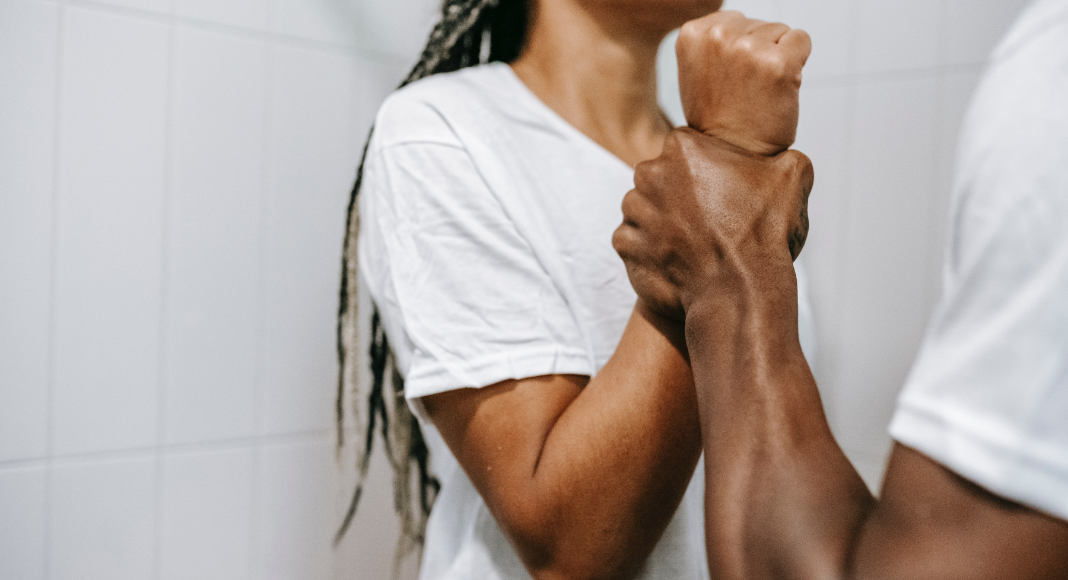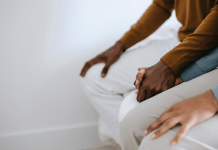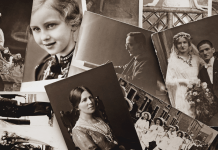If you live in the United States, it is impossible to miss the daily updates on the Johnny Depp and Amber Heard trial. Lately, the media’s narrative regarding the negative commentary surrounding Amber Heard has been, at the very least, trivializing.
It is not that we don’t want to believe a woman claiming abuse, and it isn’t because we are all fans of Johnny Depp and can’t see past his charm. Nor is it we want to vilify Amber Heard for daring to bring forth a claim against a beloved actor.
It is because we lived through abuse and her mannerisms and responses seem… well… off, or at the very least, go against what we know to be our truth.
Pause here before I continue.

I am in no way saying whether or not her abuse claims are true or false. We are not flies on their wall and the truth is between JD and AH. There is also no “right way” to act when you are a survivor of an abusive relationship.
This article is to explain why so many people have issues with her testimony and why it isn’t, as the media portrays, because they are “Depp heads.” What the media is missing is loads of comments from domestic abuse survivors recalling their own experiences and the nuances that cause us to shake our heads and say, “That doesn’t make sense.”
In watching this trial, it floods us with our own experiences and frankly, is pretty triggering in itself. Even while typing this, my hands feel cold and shakey… and it’s been over 16 years since I decided my life was worth walking away. Thus, this article comes with a trigger warning.
The Start
When Amber Heard describes her relationship, she is almost giddy reliving the showered affection and love felt by Johnny Depp. This is often true – abusers lovebomb and wrap you in an exorbitant amount of affection. You wonder how it is possible you could be so lucky and you live in a temporary state of Cloud 9.
And then it changes.
Looking back at the start of my relationship, I do not feel any sort of happiness. At first, he was amazing, kind and affectionate, attentive and caring, and incredibly charming, but there is no smile on my face as I recall this. There is no giddiness in my voice. I do not cry saying how I loved him because I want nothing to do with him. He was a con artist. He used his charm to reel me in, threaten my life, and demolish my friendships.
I wish I could grab the girl about to enter into the worst period of her life and pull her away from this future-destroyer.
Friendships & Isolation
Amber Heard spoke about how Johnny Depp showered and charmed her friends and family. My abuser did the same. He purchased little gifts for my friends and he had conversations with my family encompassing their interests. He did this to win them over so that when he isolated me, it wouldn’t seem as if he were to blame. Abusers often charm friends and family so they won’t believe you.
But there is a detail that doesn’t make a lot of sense: Amber Heard’s friends and family lived in his penthouses rent-free.
Aside from using charm, abusers try to separate you from your network. They don’t typically want to bring in your friends and family. In my case, we moved far away. He undermined my friendships with extreme jealousy or nasty remarks to the point where, in an effort to keep him comfortable, I made decisions that eventually broke friendships I held my entire life. I was distanced from my network. In time, the only friends we hung out with were his.
This is not unique to my situation. This is a part of the pattern and is a part of her account that causes pause for many survivors. Most of the time, abusers want to isolate you from your friends and family so they can better control you. They are not trying to surround you with a support system.
The Recordings
Without question, the very last thing I would do is taunt, name-call, or follow my abuser around as he became agitated… or until he snapped so that I could then say, “See, you did this thing. You are guilty, too.” For many who have experienced abuse, we actively went out of our way to avoid our abusers or calm them when they were upset so we wouldn’t bring more pain our way.
When I watched the video of Johnny Depp slamming cabinets and drinking, I thought to myself, “Oh my gosh, there is no possible way I would let myself stand that close to him if I thought he would hurt me and he was that angry.” I specifically recall standing opposite the room or on the other side of a bed and avoiding stairs or anything that could harm me.
In my experience, it did not take long to realize I needed to become small to survive. I remember riding in a car one snowy night when he became angry at me for getting frustrated about a wrong turn. In response, he swerved into oncoming traffic and stayed in the lane, weaving back to avoid a head-on, and then promptly pressed on the gas, threatening to run into the car in front of us if I didn’t “f***ing shut up right now.”
I learned to shut up.
To hear AH’s voice recordings of constant arguing mixed with her testimony that she was scared for her life takes me to a place of reliving these moments, asking, “Would I do that?” Maybe at first before I learned the repercussions, but as soon as real threats started, there is no way. I did whatever I could to keep us in the “up-phase” of the cycle.
Leaving During Fights
There is the detail of leaving. Johnny Depp seems to leave and Amber Heard is recorded begging him to stay and finish the fight… to solve it. I get that notion – working it out. After all, some people live by the words, “Don’t go to bed angry.”
Yet, I remember being left… but it was a much different scenario. You can hear Johnny Depp stating something to the effect of, “I am going to leave and I’ll do my thing and you do yours. We need to cool down.”
In my experience, leaving was a form of punishment. The, “I can’t stand to even look at you. I physically cannot be here because the sight of you makes me want to puke. You are not someone I want in my presence.” This turned into the, “Since this doesn’t mean anything to you, I am going to go out with the girls from work asking for a dinner date.”
Another time, he left me in a club downtown when I went to the bathroom because I was not standing next to him. He claimed I made him feel like he didn’t matter. Of course, I didn’t know he felt like this, as he was just smiling and laughing. When I came out from the long bathroom line, he was gone. I had no way to get home in a city I didn’t know.
And then there was a moment where I was completely broken, on my knees on our bed, sobbing. He looked at me and said, “I can’t deal with you. How do you think seeing you like that makes me feel?” and left.
For me, that was leaving.
Details
Perhaps someone else can put their finger on it, but the details from Amber Heard seem strangely out of place. For example, she mentions the dirty carpet right after being hit… not that she noticed it before the alleged violence or way later but right after she was hit. In my experience, fight or flight doesn’t work like that.
For me, there are specific details I can recall… a dropped pizza before a complete mess of a night, the lighting in the office when I finally could prove he was gaslighting me, the color of the slip he bought me the day I broke up with him… but those details do not happen during the actual abuse when my adrenaline kicked in.
One night, when he left, I called a friend and told him if I called back to answer and record the call because that meant it was going to be bad. Sia’s Colour the Small One was on before he came home, and under the covers, my hand cradled my phone. My finger rested on the dial button so he couldn’t see it, but I could press call if he was scary-angry.
That is all I remember. I don’t know if Sia was playing when he got home. I can’t remember what we fought about. The specifics are gone because I likely went into “stay safe, diffuse, placate” mode. As abuse survivors watch the case, there are likely details in Amber Heard’s testimony that bring back their own memories and leave them pondering, “Would I remember details like that?”
In the car ride I mentioned earlier, I remember the snow only because I worried we were going to skid into a car wreck, but the rest I don’t remember. Snippets float by as my mind tries to recall moments, but it is jumpy at best. That night, the fight got worse when we actually got home. I remember how my eye ended up meeting his fist and the mental questioning once I got away. Everything else is gone. I don’t know the wall colors or the bedding or what we were wearing. I can’t remember going downstairs… it is just… gone.
When I try to recall the other times… the verbal and emotional abuse… the times I was scared or completely undone… many of them are wiped clean except for these snippets. I cannot tell a detail-laced story. My entire focus was “stay safe; keep distance; diffuse; judge and react to what was in front of me.” I was very, very careful to not do things to trigger him more.
Mannerisms
For many having lived through abuse, the way Amber Heard portrays herself on the stand hits a chord. The extremities of emotion – big, unshaking, story-telling, tearless, detail-filled – memories that Amber Heard explains while looking everyone in the eye. When you look at the 2016 videotapes when it is still so raw… she is cavalier and fiesty.
Yes, everyone acts differently, and again, it is not mine to say if she was lying or telling the truth… but if the media really wants to know why people question her, that is partly why. Imagine a dog that is beaten again and again and again. They whimper and hide in the corner and cower, lowering their head. People aren’t much different.
Even with my own husband, I tend to look away as I tell my story and then bring my eyes back to him at the end… and this is a person I trust with my whole heart. I don’t mean to do this but to go back to that place isn’t something I enjoy reliving. I was at my worst, most vulnerable, and to tell my experience while looking someone in the eye is extremely difficult, if not impossible for me.
And I definitely wouldn’t describe my ex as a person I miss, at all, not even the good parts, because the bad was so terrible that the last thing I would want is to see him.
In fact, I did… once. As we watched him walk toward a building we were leaving, my husband asked me what I wanted to do. Although I had 1,000 things I rehearsed saying to him if this moment came, when it was in front of me, all I wanted was to get away. I did not want to look him in the eyes. I wanted no part of him. He had taken enough from me.
Changed for Life
Someone recently told me “You were always a nervous person, but your anxiety hit a whole different level after him. You weren’t the same.” I am still not the same. I never had these anxiety attacks when I was younger. Now I do.
A day after watching this trial, I came to a very real conclusion when recapping the trial with my husband. “You know… I used to wrap myself up in my boyfriends and would do all these romantic things for them, and then he villainized that. He would write these beautiful, poetic notes and then bring me to this point of desperation and pain so searing that I rejected romance. So now, you have this version of me. You got this washed-out version of who I was… and I hate him for that.”
Sixteen years later, there is still a wound.
This is what the media misses. It isn’t about “not liking Amber Heard” or “being in love with Johnny Depp…” For many, there is a recollected pain that doesn’t quite match what Amber Heard is showing. For her, it may be how she experiences it, but for many, something just feels off.
And it isn’t because we are “Johnny Depp obsessed fans.”
There is irony in the media dismissing those questioning Amber Heard’s account. They are effectively accomplishing exactly what they claim “Depp-Heads” are doing: not listening to the survivors of domestic abuse.
If you or someone you know is a victim of domestic violence and in need of help, visit thehotline.org or call 1-800-799-SAFE.












